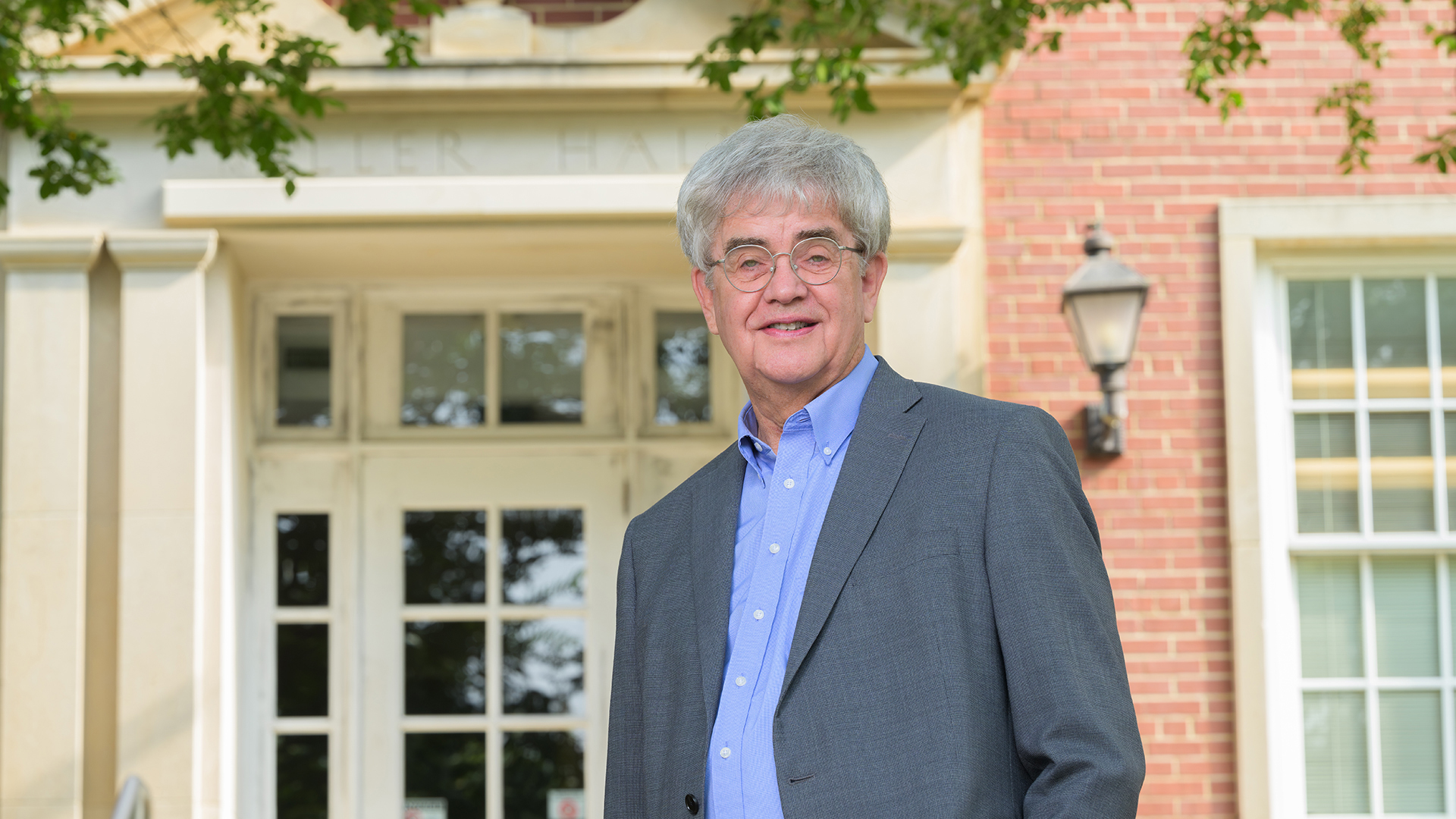
September 1, 2023
By Matt Crouch
AUBURN, Alabama – Fifty years. Unless you have lived it, 50 years of anything is a lot to wrap your mind around. It is a landmark, a goal, a plateau, a golden anniversary. It can be so many things, but for the Harrison College of Pharmacy’s Dr. Randall Clark, it is his Auburn career. And, one that is still going.
On Sept. 1, 1973, Clark walked onto the Auburn campus and took his place in his new office and lab in Miller Hall, home of the Auburn School of Pharmacy. Fifty years later, he is less than 100 yards away in his office in the W. W. Walker Pharmacy Building, still conducing groundbreaking research at the Harrison College of Pharmacy.
Different buildings, different names, but he has been the constant. Moving to a village of around 23,000 people, he has seen Auburn grow into a bustling city of 80,000. With the city, the university has grown as well, enrolling 15,705 in his first semester to more than 31,000 in the fall of 2023.
When you think about big events in Auburn history, he was there. Elvis Presley playing Beard-Eaves-Memorial Coliseum in 1974, Clark was there. The Kopper Kettle explosion in 1978, he was in town for that one too. He once ran into Bo Jackson on his way to class and got his autograph on some chromatography notes. Clark witnessed the removal of the original Toomer’s Oaks and was in Jordan-Hare Stadium for the Kick Six.
For all that he has witnessed, when you ask him what stands out from his time at Auburn, students are at the top of the list.
“I always enjoy participating in the excitement of student successes — completing qualifying exams, defending a dissertation, graduation and their first position,” said Clark.
The focus on students should come as no surprise and fits with the legacy he unknowingly assumed. For all the faculty that have come and gone over the years, there are a few names that persist, but none more than George Hargreaves. He has the lore of having taught every subject in the curriculum, serving Auburn for 47 years and leaving a legacy that is recognized with his name being on the annual Hargreaves Day.
While that name did not mean much to him at the time, it was one of the first Clark saw when he accepted his position at Auburn. On the offer letter from President Harry Philpott, there is a blank indicating if a faculty member is assuming a new position or replacing an existing one. Next to replacement, it is noted that Clark is filling the vacancy left by Hargreaves’ retirement.
“In addition to the classroom lectures and learning, Dr. Clark’s impact as a coach and mentor has been immense and hugely valuable,” said Carl McMillian, senior vice president at Eli Lilly and a former student of Clark’s. “Some of the coaching that I benefitted from as a student has continued to serve me well over the decades of life after school. His innate curiosity and passion for science continues to burn strong.”
Since his arrival on the Plains, Clark has built HCOP’s medicinal chemistry unit into one of the most respected in the country. With more than $5 million in research funding, including more than $2 million just from the Department of Justice and National Institute of Justice, he and his lab have become national leaders when it comes to drugs of abuse and designer substances.
Along with classroom instruction and student mentoring, Clark says he is always interested in the question of “why?” Why is this a certain way and why does that operate in that way? This eternal question has guided him through years of research and is what keeps him returning to the office when many in his situation would have long ago traded in the desk and computer for a lounger and golf clubs.
“Designing the next experiment to answer the latest ‘why’ is the driving force for laboratory science and much of human endeavor,” said Clark. “Realizing and helping students understand the limitations of an answer is often as important as the actual answer. Our research efforts have certainly made significant contributions to the body of knowledge in several fields, such as anticonvulsant drug development, forensic chemistry, mass spectrometry and separation sciences. In projects where the scope and duration of the effort is specifically defined, many interesting questions go unaddressed, essentially creating more questions than answers.
“Thus, there is no possibility of ever running out of things to do.”
New and emerging technologies, along with eager and motivated students keeps him coming back as well, working to solve the mysteries of forensic and medicinal chemistry.
“The forensic drug chemistry research is a mixture of theoretical and practical,” said Clark. “The work allows us to solve real world problems, then dig a little deeper to understand the scope and limitations of the solution. Experimental science is a process of answering questions then questioning the answer.”
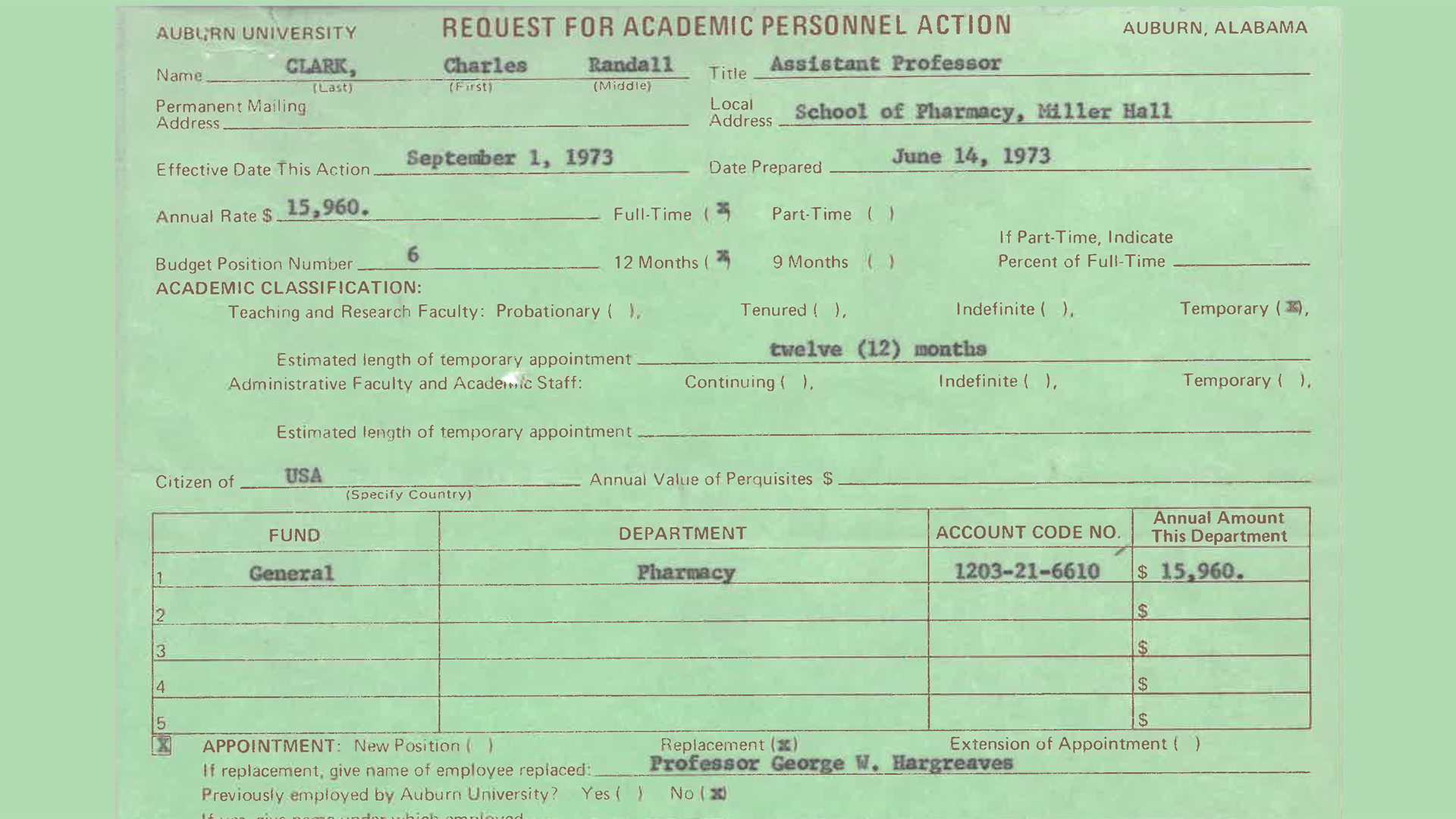
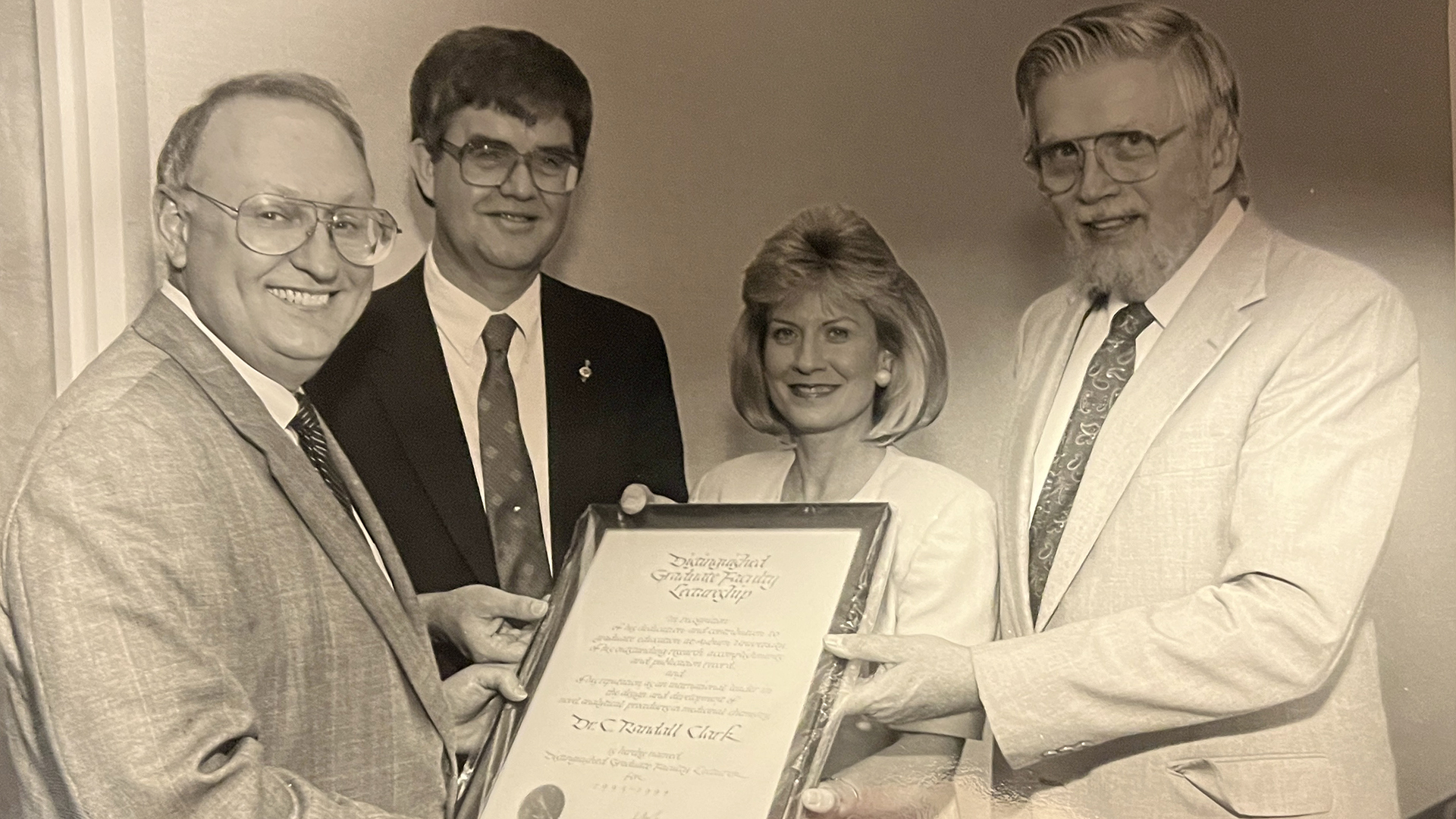
A native of Gainesville, Georgia, Clark earned a Bachelor of Arts in chemistry and biology from Berry College, an institution that recently recognized him with its Distinguished Alumnus Award. Graduate school was a goal, but with a degree in hand, along with his wife Margaret and $400 to his name, Clark needed a job. He found one with the Georgia Department of Forensic Sciences in the drug chemistry section.
“I learned a ton of drug chemistry during my time there and the desire to learn even more has never left me,” said Clark. “We stayed in Atlanta for two years until the desire to go to graduate school got too strong to resist.”
Now with a son, Matthew, in tow, the Clark family loaded up for a move to Oxford, Mississippi and the medicinal chemistry doctoral program at the University of Mississippi. Clark was recently recognized by the school of pharmacy with the Joseph Sam Award for outstanding research contributions in pharmaceutical sciences.
While making a presentation at a regional medicinal chemistry meeting, he built a relationship with Auburn pharmacy faculty member Dr. Charles Darling. Darling was an expert in anticonvulsant drugs, an area of particular interest to Clark. Darling mentioned an opening at Auburn created by the retirement of Hargreaves. In his fourth year of his doctorate program, Clark put in the hours to complete enough of the degree to be able to apply.
“Two people were interviewed, and I was fortunate enough to get the appointment,” said Clark. “I came to stay a few years and move on, but Margaret, Matthew and I liked it here and now 11 Auburn presidents and five pharmacy deans later and we just haven’t moved on yet.”
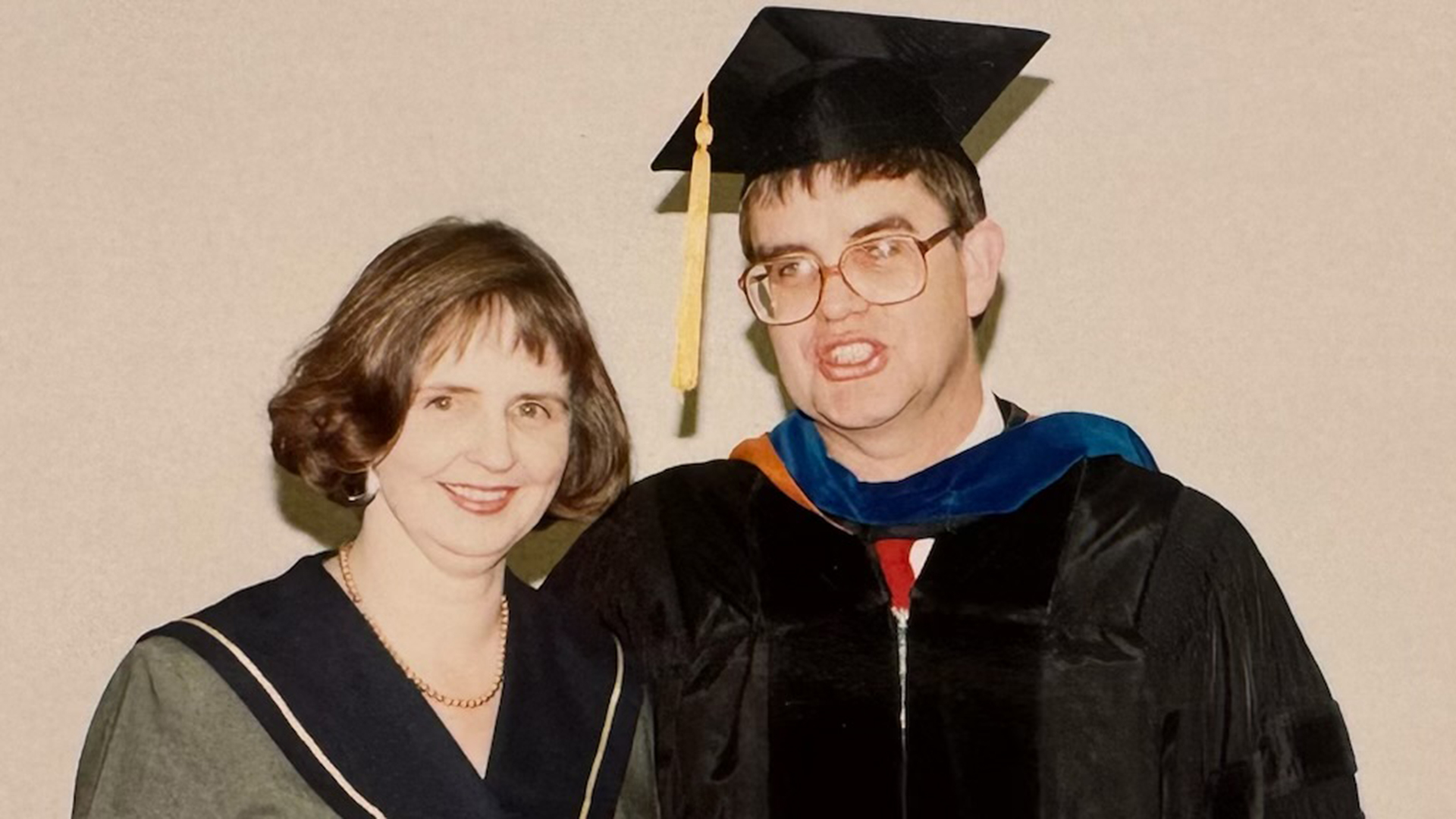
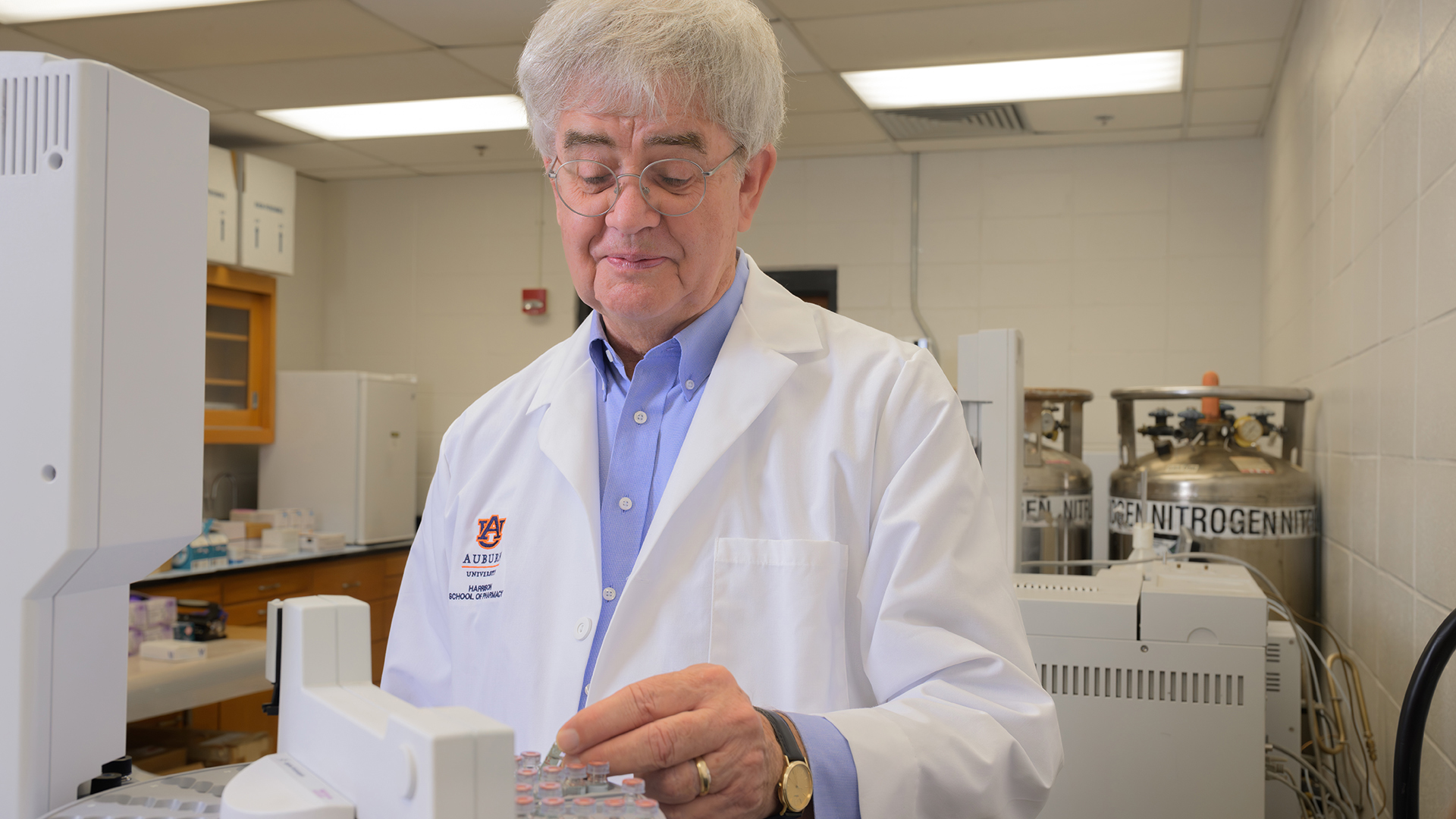
Over his 50 years, Clark has brought in millions of dollars in research finding while contributing more than 270 publications in high-impact journals, more than 1,000 sets of substance characterization data to the National Institute of Standards and Technology database, 16 technical manuals detailing exact methods for identification of drugs of abuse and designer substances and countless lectures and presentations.
Before all of that, he got his start working with Darling on work related to anticonvulsant drugs, a diverse group of pharmacological agents used in the treatment of epileptic seizures. He was a part of some innovative work and developed some new and exciting compounds, but his interest and connection to forensic drug chemistry was always there.
Over time, he developed a relationship with the Alabama Department of Forensic Sciences and Taylor Noggle, a drug chemist and eventual director of the Auburn lab that arrived in town around the same time as Clark.
“Taylor and I became close and lifelong friends. We worked closely together for many years, solving contemporary problems related to the next designer substance and issue of clandestine drug identification and specificity,” said Clark. “Taylor’s input and guidance on the horizon issues concerning novel psychoactive substances allowed us to be among the first to address and solve some of the major forensic chemistry issues of the day.”
This opened the door for federal funding to address issues related to things like bath salts, fentanyls, synthetic cannabinoids and others.
“Our mixture of theoretical and practical forensic chemistry allowed Taylor, Dr. Jack DeRuiter and I the opportunities to present lectures, workshops and training courses at national and international locations over many years,” said Clark.
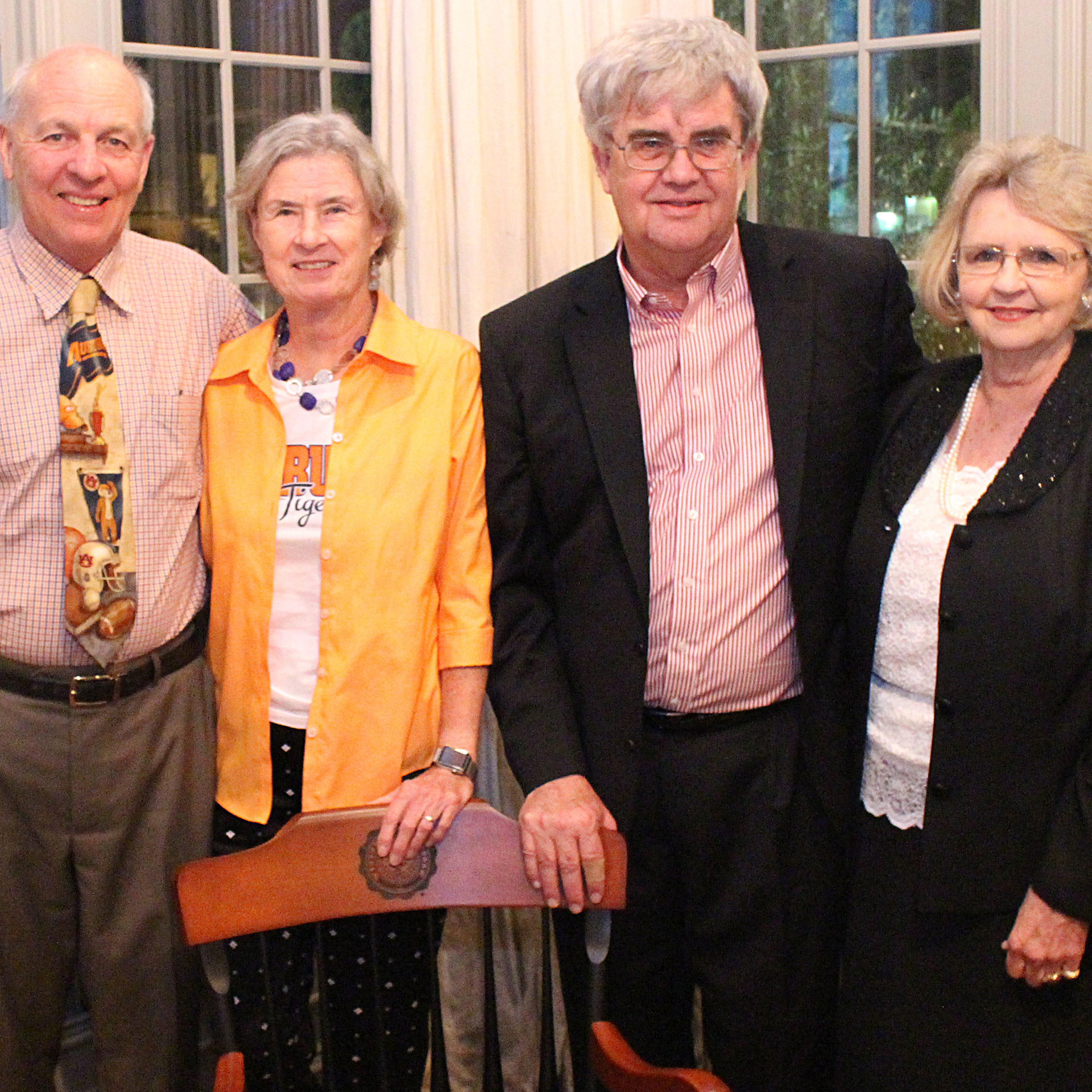
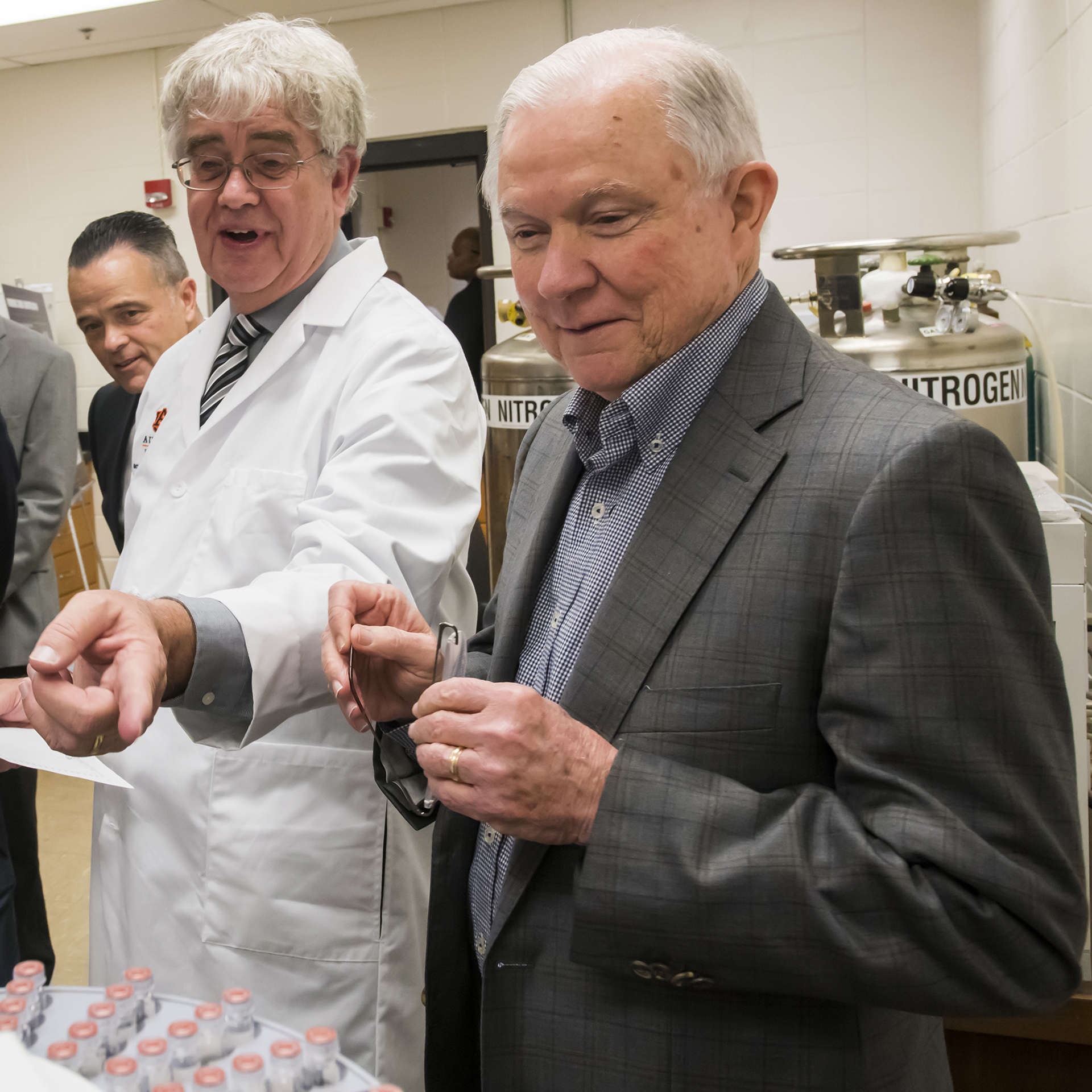
Much like the faculty member he replaced, Clark has left an impact on Auburn University and its students. He directly mentored more than 30 graduate and postdoctoral students, worked closely with more than 70 graduate students while teaching literally thousands of pharmacy and pharmaceutical science students.
“This is a very enjoyable part of my position at Auburn, working with bright, motivated students that keep you engaged and alert,” said Clark. “Students have gone on from the program to careers in academics, industry, regulatory agencies, start-up businesses and more.”
Pharmacy is a family and Clark has seen that first-hand as he has taught multiple members and even multiple generations of families. He even mentioned the Silvey family out of Birmingham that has seen six members of the family find their way to his classroom.
Providing these students with a knowledge base of the basic sciences as they worked their way through pharmacy school, Clark is grateful to have contributed in any way to their education.
“I feel very honored to have been involved in their education in some small way and extremely proud of all their accumulated accomplishments,” said Clark. “Graduates of the Auburn pharmacy program have gone on to practice pharmacy in their communities around the state and region, providing needed services to their patients and most of our graduates are leaders in their communities.”
An example of his impact coming full circle is the line under his name on his business card: “Gilliland Professor.” David and Sandra Gilliland were two of the first students he taught after arriving in Auburn. Forty-three years later, he was honored to be the recipient of one of the Gilliland endowed professorships.
While many think back on him for the impact he made on their education and their career, Clark is thankful for what Auburn has given to him.
“Auburn has provided me with significant opportunities for professional and personal growth and maturity and I am forever grateful,” said Clark. “I have tried to take advantage of as many of those opportunities as possible and I am certainly proud of the resulting accomplishments. However, I am most proud and appreciative of all the lifelong personal friendships that have developed with students, faculty colleagues, AU leadership and our community members.”
----------
Auburn University’s Harrison College of Pharmacy is ranked among the top 25 percent of all pharmacy programs in the United States, according to U.S. News & World Report. Fully accredited by the Accreditation Council for Pharmacy Education (ACPE), the College offers doctoral degrees in pharmacy (Pharm.D.) and pharmaceutical sciences (Ph.D.) while also offering a master’s in pharmaceutical sciences. The College's commitment to world-class scholarship and interdisciplinary research speaks to Auburn's overarching Carnegie R1 designation that places Auburn among the top 100 doctoral research universities in the nation. For more information about the College, please call 334.844.8348 or visit http://pharmacy.auburn.edu.